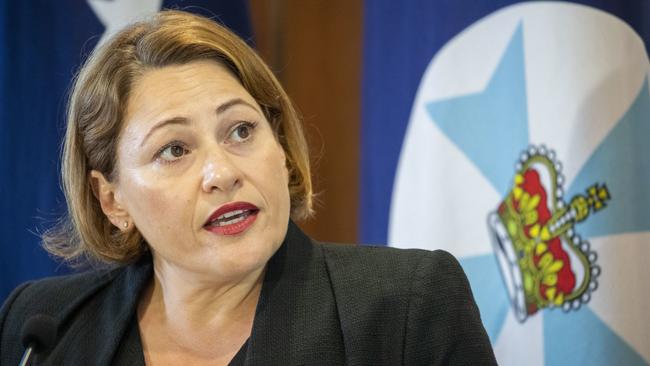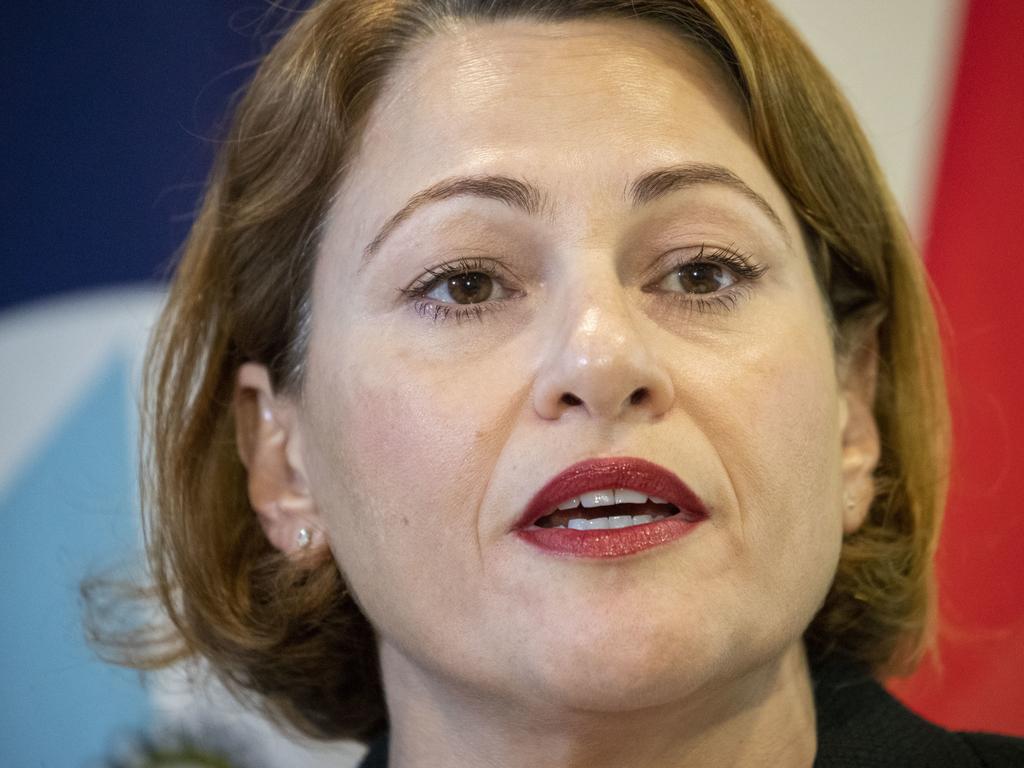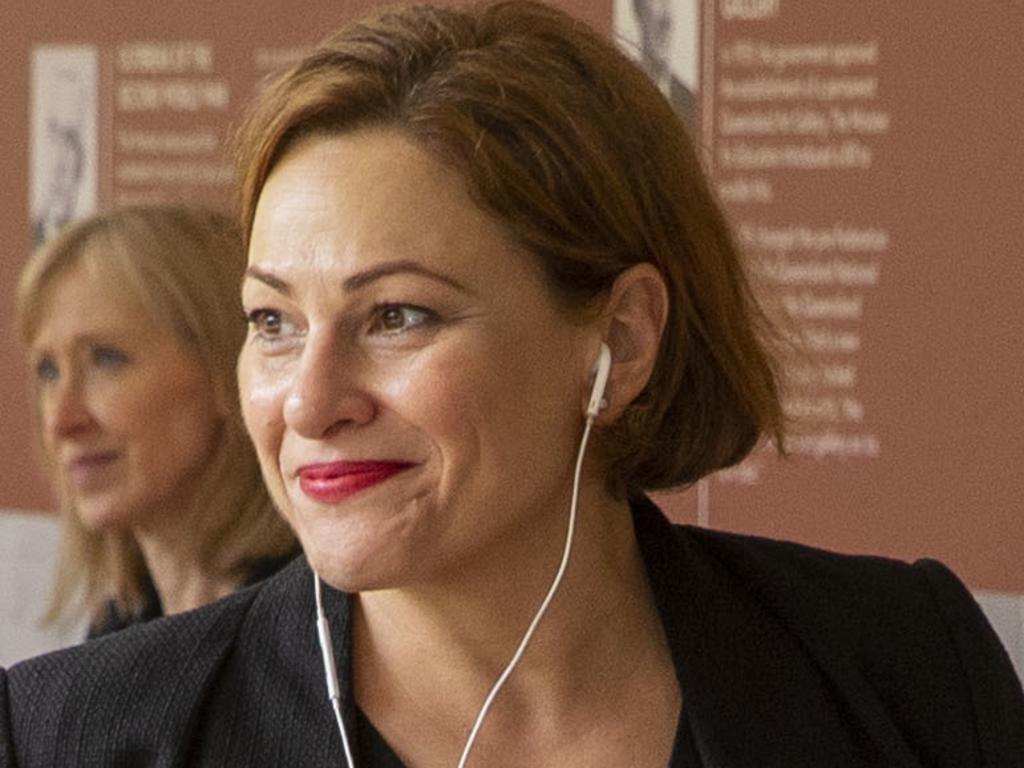‘Trad laws’ water down the seriousness of ministerial conflicts of interest, says watchdog
The CCC says the Palaszczuk government’s proposed laws ‘water down’ requirements for ministers to avoid conflicts of interest.

Queensland’s corruption watchdog has warned the Palaszczuk government’s so-called Trad laws aimed at cracking down on ministerial conflicts of interest would have the effect of “watering down’’ rather than strengthening the regime.
Crime and Corruption Commission chairman Alan MacSporran QC warned the government that its proposed new criminal offences — developed in the wake of Deputy Premier Jackie Trad’s investment property scandal last year — risked weakening the system that requires cabinet ministers to properly declare conflicts of interest.
He said he was not satisfied with the government’s legislative response to the CCC’s probe into Ms Trad’s investment property dealings, which in September cleared her of corruption and dishonesty and found her behaviour was not criminal, but should be in future.
The Treasurer failed to properly and publicly declare her family company’s purchase of a Woolloongabba investment property near the planned route of her signature infrastructure project, the $5.4bn Cross River Rail in Brisbane. Ms Trad did not update her public pecuniary interest register in time, or declare the potential conflict of interest at cabinet meetings relating to the project.
Mr MacSporran criticised the government’s insistence that a cabinet minister must have a “dishonest intent” in order to fall foul of the new criminal offences.
“The CCC considers that the proposed new section 40A does not achieve the purpose of the CCC’s recommendation … to create a criminal offence in relation to undeclared conflicts of interest to strengthen the framework and obligations on ministers to avoid conflicts of interest,” Mr MacSporran said.
He said elements of the proposed offence — which carries a two-year maximum jail term — “overlap entirely” with the existing, more serious, offences in the criminal code of misconduct in public office and fraud.
“Both these (existing) offences involve acts or omissions done dishonestly with intent to gain a benefit or cause a detriment. The new offence as proposed would essentially require proof of the same elements, but with a substantially lower penalty,’’ Mr MacSporran said.
“An unintended consequence of the proposed provision may be to ‘water down’ the seriousness of the conduct which may already amount to serious criminal offending, rather than strengthening the framework and obligations on ministers to avoid conflicts of interest.”
Mr MacSporran recommended the requirement for “proof of dishonest intent” be scrapped to create a criminal sanction for merely failing to declare a conflict, which would encourage transparency and reduce the risk of corruption.
The CCC’s pointed submission is just one of dozens complaining about the government’s latest proposed electoral reforms, introduced at the last sitting of parliament in November and requiring responses to be drafted over the festive season.
The Queensland Law Society castigated the process as “not genuine or proper consultation”, as it cautioned the government against its new electoral expenditure laws, which it said would have a “chilling effect” on charities and not-for-profit organisations taking part in social policy debate.
State Integrity Commissioner Nikola Stepanov also warned the government against repealing some of the confidentiality provisions that protect her work and would potentially allow the Director of Public Prosecutions to access previously secret disclosures by ministers or public servants to help with investigations or prosecutions.
Dr Stepanov said the changes might “strongly dissuade and deter” people from seeking advice from her in “times of concern and uncertainty” and would lead to decisions being made that “are not in the public interest”.
The electoral reform legislation proposes new political donation caps, caps on campaign spending by both political parties and third party organisations — including unions — and the new criminal sanctions.
Queensland Deputy Opposition Leader Tim Mander said the CCC’s submission showed Queensland Premier Annastacia Palaszczuk had “failed yet another test of leadership to restore integrity to the Queensland government”.
A government spokesman said the electoral reform bill aimed to “raise the accountability bar even higher” and more than 60 submissions would be considered by the parliamentary committee.
“We’ll consider the committee’s recommendations once it reports back,” he said.
Ms Trad apologised when the undeclared investment property was revealed, but strongly denied she had intentionally done anything wrong.
The investment property has since been sold for no profit, and Ms Palaszczuk stripped her of ministerial responsibility for the Cross River Rail.
Ms Trad kept her roles as Treasurer and Minister for Aboriginal and Torres Strait Islander Partnerships.
More Coverage







To join the conversation, please log in. Don't have an account? Register
Join the conversation, you are commenting as Logout